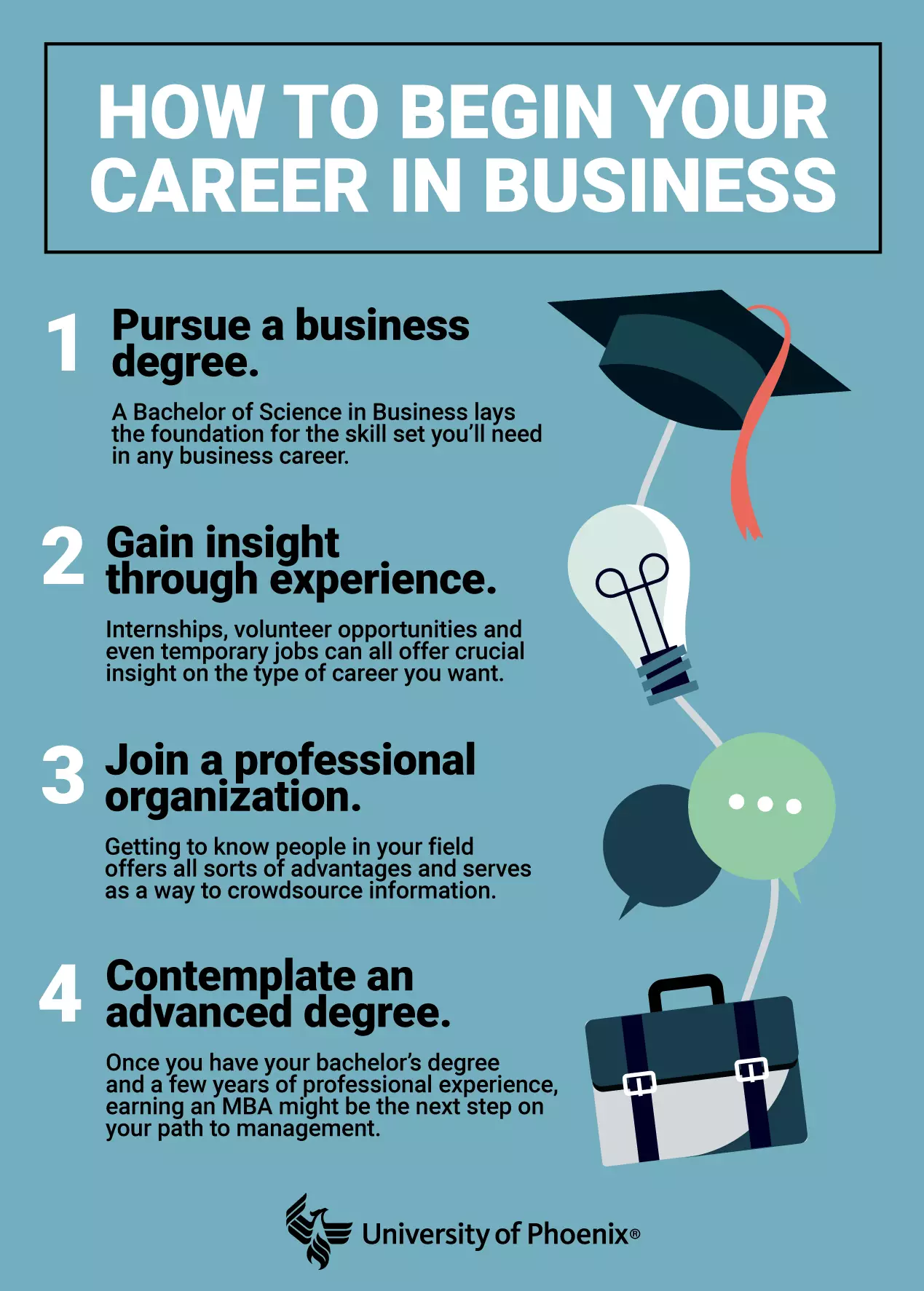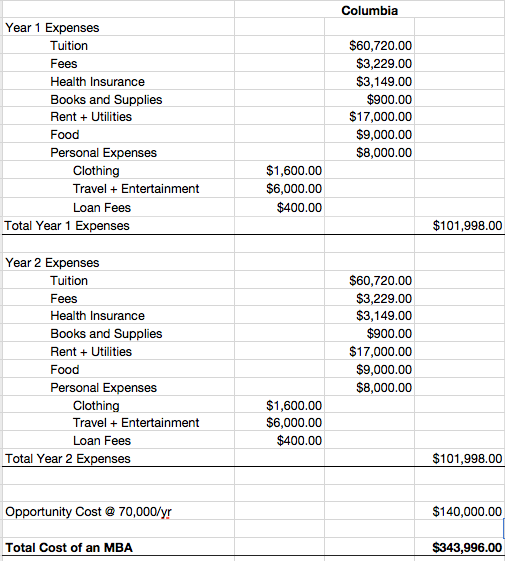In today’s competitive business landscape, professionals with an MBA degree stand out as highly sought-after candidates. The MBA, or Master of Business Administration, is a prestigious qualification that equips individuals with a comprehensive understanding of business principles, analytical skills, and leadership capabilities. Whether you aspire to climb the corporate ladder, launch your own venture, or transition into a new industry, an MBA can open doors to a world of possibilities.
Career Paths for MBA Graduates
An MBA degree can open doors to a wide range of career paths, equipping you with the skills and knowledge to succeed in various industries. Here are some of the most common career paths for MBA graduates:
Management and Leadership Roles
An MBA can equip you with the skills and knowledge needed to excel in management and leadership roles, across different industries.
| Role | Responsibilities | Skills Acquired from MBA |
|---|---|---|
| General Manager | Oversees the overall operations of a business unit or department. | Strategic thinking, financial analysis, leadership, and communication. |
| Operations Manager | Responsible for the efficient and effective operation of a business’s processes and resources. | Process improvement, supply chain management, and data analysis. |
| Project Manager | Leads and manages complex projects, ensuring they are completed on time and within budget. | Project management methodologies, risk management, and stakeholder communication. |
| Human Resources Manager | Manages all aspects of human resources, including recruitment, training, and employee relations. | Human resource management, organizational behavior, and leadership. |
Entrepreneurship and Business Development
An MBA can provide you with the tools and knowledge to start your own business or pursue a career in business development.
| Role | Responsibilities | Skills Acquired from MBA |
|---|---|---|
| Entrepreneur | Starts and manages a new business venture. | Business planning, financial management, marketing, and sales. |
| Business Development Manager | Identifies and develops new business opportunities for a company. | Market research, sales negotiation, and strategic planning. |
| Product Manager | Responsible for the development, launch, and lifecycle of a product or service. | Product development, marketing, and customer analysis. |
Consulting and Advisory Roles
An MBA can open doors to consulting and advisory roles, allowing you to leverage your analytical and problem-solving skills to help organizations improve their performance.
| Role | Responsibilities | Skills Acquired from MBA |
|---|---|---|
| Management Consultant | Provides advice and solutions to organizations on a variety of business challenges. | Analytical skills, problem-solving, strategic thinking, and communication. |
| Financial Consultant | Advises clients on financial matters, such as investment strategies and financial planning. | Financial analysis, investment management, and risk assessment. |
| Strategy Consultant | Helps organizations develop and implement their strategic plans. | Strategic thinking, market analysis, and industry knowledge. |
What can I do with a degree in MBA?

Career Paths
An MBA opens doors to a wide array of career paths across various industries. You can pursue management roles in diverse sectors such as finance, marketing, consulting, technology, healthcare, and more. The skills and knowledge gained during your MBA program, including strategic thinking, leadership, and problem-solving, make you a valuable asset to any organization.
- Management Consulting: Consultants work with organizations to solve complex business problems, improving efficiency and effectiveness. MBA graduates often specialize in areas like strategy, operations, or technology consulting.
- Corporate Management: MBA graduates are well-prepared for senior management roles within companies. These positions often involve overseeing departments, leading teams, and making strategic decisions for the organization.
- Entrepreneurship: An MBA provides a strong foundation for starting and running your own business. The program equips you with the knowledge of finance, marketing, and business strategy needed to succeed in the entrepreneurial world.
Industry Focus
An MBA can specialize in a specific industry, allowing you to focus your career on a particular area. This industry specialization can give you a competitive edge when seeking employment.
- Finance: MBA graduates can work in investment banking, asset management, corporate finance, and other financial sectors.
- Marketing: An MBA in marketing provides knowledge in brand management, digital marketing, and consumer behavior. You can pursue roles like marketing manager or director.
- Technology: The tech industry is constantly evolving, and MBA graduates with a focus on technology can work in areas like product management, data analytics, or venture capital.
Salary Potential
Earning an MBA can lead to a significant salary increase. The average salary for MBA graduates is generally higher than for those with only a bachelor’s degree. The specific salary potential will depend on factors such as the industry, specialization, and experience.
- Higher Starting Salaries: MBA graduates often command higher starting salaries than their peers with bachelor’s degrees.
- Increased Earning Potential: The skills and knowledge gained from an MBA program can lead to faster career advancement and higher earning potential throughout your career.
- Strong ROI: The investment in an MBA can pay off in the long term, with higher salaries and greater career opportunities.
Which MBA has the highest salary?
It’s impossible to definitively say which MBA program guarantees the highest salary. Salary outcomes are influenced by numerous factors, including the specific school, program specialization, individual skills, and the job market. However, certain schools consistently rank high in terms of average starting salaries and career advancement opportunities.
Top-Ranked Business Schools
- Harvard Business School: Consistently ranked among the top business schools globally, Harvard Business School boasts a strong alumni network and a reputation for producing highly sought-after graduates. Their MBA program attracts a diverse group of students with impressive backgrounds and ambitions, leading to high salary expectations.
- Stanford Graduate School of Business: Another prestigious institution, Stanford GSB, is known for its emphasis on innovation and entrepreneurship. Their MBA program attracts talented individuals with a focus on technology and the startup ecosystem, resulting in competitive salaries and career paths in Silicon Valley and beyond.
- Wharton School of the University of Pennsylvania: Wharton is renowned for its finance and consulting programs. Their MBA graduates often secure lucrative positions in these industries, contributing to the school’s consistently high average salary figures.
Factors Influencing Salary Outcomes
- Program Specialization: MBAs with specializations in high-demand fields, such as finance, consulting, or technology, often command higher salaries. Specialization allows graduates to acquire specific skills and knowledge that are highly valued by employers.
- Prior Work Experience: Candidates with substantial work experience prior to entering an MBA program tend to secure higher-paying positions upon graduation. Their experience adds value to their qualifications, making them more attractive to employers.
- Job Market Conditions: The overall economic climate and industry trends play a significant role in salary outcomes. A strong job market with high demand for MBAs generally translates to higher salaries for graduates.
Beyond Salary: The Importance of Career Goals
- Long-Term Value: While salary is an important consideration, it’s crucial to consider the long-term value of an MBA program. A program that fosters personal and professional growth, provides access to a strong alumni network, and offers valuable career resources can lead to a fulfilling and rewarding career trajectory, even if the initial starting salary isn’t the highest.
- Return on Investment: It’s essential to weigh the cost of an MBA program against the potential salary increase and career advancement opportunities. Consider the potential return on investment, both in terms of financial gain and career satisfaction.
- Career Path Alignment: Choosing an MBA program that aligns with your career goals is crucial. If you’re passionate about a specific industry or functional area, select a program that offers specialization options in that field to maximize your career potential.
Is a MBA worth it?
The question of whether an MBA is worth it is a complex one, with no easy answer. It depends heavily on your individual goals, career aspirations, and financial situation. While an MBA can open doors to higher-paying positions, increased career mobility, and expanded professional networks, it also comes with a significant financial and time commitment.
Benefits of an MBA
- Higher earning potential: MBAs have consistently been shown to earn more than those with just a bachelor’s degree. This is due to the skills and knowledge gained through the program, which are highly valued by employers.
- Career advancement: An MBA can provide the necessary qualifications for leadership roles and can open doors to new career opportunities, particularly in management and executive positions.
- Networking opportunities: MBA programs offer a valuable platform for networking with peers, industry professionals, and potential employers, which can lead to future career advancement and business opportunities.
- Enhanced skills: MBA programs develop essential skills such as critical thinking, problem-solving, communication, and leadership. These skills are highly valuable in today’s rapidly changing business environment.
Drawbacks of an MBA
- High costs: MBA programs are expensive, with tuition fees, living expenses, and lost income during the program. These costs can significantly impact your finances and require careful planning.
- Time commitment: MBA programs typically require a significant time commitment, often involving full-time study for two years. This can disrupt your current career and personal life.
- Not always necessary: In certain industries and career paths, an MBA may not be essential for career advancement. It’s important to research the requirements for your specific field and goals.
- Potential for debt: The high cost of an MBA can lead to significant student loan debt, which can impact your financial stability and future planning.
Where do MBAs end up?

MBA Graduates in Management Roles
An MBA is often considered a gateway to leadership positions. Many graduates go on to occupy roles like Chief Executive Officer (CEO), Chief Operating Officer (COO), Chief Financial Officer (CFO), and other executive positions in various sectors.
- The analytical, strategic, and leadership skills developed during the program prepare them for complex decision-making and overseeing various aspects of a company.
- MBA programs often equip graduates with practical knowledge and tools to manage teams, handle finances, and navigate a competitive business environment.
- Networking opportunities during the program can also lead to valuable connections and potential job offers within these leadership roles.
MBA Graduates in Consulting
Consulting firms, particularly management consulting, heavily recruit MBA graduates. These firms often seek professionals with analytical and problem-solving skills, along with the ability to work effectively in diverse teams.
- MBAs help graduates acquire the necessary knowledge and skills to assess complex business problems, develop solutions, and present recommendations to clients.
- Consulting roles offer a fast-paced environment where graduates can gain exposure to different industries and develop a wide range of business skills.
- The experience gained in consulting can be a valuable stepping stone to other leadership positions or starting one’s own business.
MBA Graduates in Entrepreneurship
The entrepreneurial spirit fostered during MBA programs encourages some graduates to venture out and start their own companies. The program provides valuable skills and knowledge, including business planning, financial management, and marketing, which are essential for success in the entrepreneurial world.
- MBA graduates may leverage their network, experience, and resources gained during the program to establish and grow their businesses.
- The entrepreneurial drive and the ability to identify opportunities, often honed during MBA programs, equip graduates to navigate the challenges of starting a venture.
- The financial literacy and problem-solving skills acquired during the program can help entrepreneurs secure funding and overcome obstacles.
Frequently Asked Questions
What are some career paths that an MBA can open up?
An MBA can open up a wide range of career paths, from traditional management roles to more specialized fields. Some common career paths for MBA graduates include:
- Management consulting: MBA graduates are highly sought after by consulting firms, where they use their analytical and problem-solving skills to help organizations improve their performance.
- Investment banking: An MBA can open doors to roles in investment banking, where graduates work on mergers and acquisitions, capital raising, and other financial transactions.
- Corporate finance: MBA graduates often work in corporate finance departments, where they are responsible for managing a company’s financial resources, including budgeting, forecasting, and investment decisions.
- Marketing and sales: An MBA can give you the skills and knowledge to excel in marketing and sales roles, where you will be responsible for developing and executing marketing strategies and generating revenue.
- Entrepreneurship: An MBA can provide you with the skills and knowledge you need to start and grow your own business, from developing a business plan to securing funding.
The specific career paths available to you with an MBA will depend on your interests, skills, and experience. However, an MBA can give you a competitive edge in the job market and open up opportunities that may not be available to you with just a bachelor’s degree.
How much can I expect to earn with an MBA?
The salary potential for MBA graduates varies widely depending on factors such as industry, location, and job function. However, an MBA can significantly increase your earning potential. According to the Graduate Management Admission Council (GMAC), the average starting salary for MBA graduates in the United States is around $115,000.
The return on investment for an MBA is often high, as the increased earning potential can offset the cost of tuition and other expenses. Many MBA programs offer career services that can help you find a job after graduation and negotiate a competitive salary.
What are the admission requirements for MBA programs?
The admission requirements for MBA programs vary, but generally include the following:
- A bachelor’s degree from an accredited institution.
- A strong academic record, including a high GPA.
- A good score on the GMAT or GRE, standardized tests that assess your aptitude for graduate-level business study.
- Work experience is often required or preferred, although the specific amount of experience required varies by program.
- Letters of recommendation from professors, supervisors, or other professional contacts who can attest to your abilities and potential.
- A strong essay that describes your career goals, motivations for pursuing an MBA, and how the program will help you achieve your goals.
- An interview with the admissions committee.
Some programs may also have additional requirements, such as a minimum score on the TOEFL or IELTS for international students. It is important to research the specific requirements of the programs you are interested in and make sure you meet all the criteria.
What are the benefits of getting an MBA?
Earning an MBA can offer many benefits, both professionally and personally. Some key benefits of an MBA include:
- Increased earning potential: An MBA can significantly boost your salary and earning potential, particularly in senior-level management roles.
- Career advancement opportunities: An MBA can qualify you for higher-level positions and open up new career paths that may not be available to you with a bachelor’s degree.
- Improved job security: MBA graduates are often in high demand, which can lead to greater job security and more stability in your career.
- Enhanced leadership skills: MBA programs emphasize leadership development, providing you with the skills and knowledge you need to effectively lead teams and organizations.
- Stronger network: MBA programs offer opportunities to build a network of contacts with other students, professors, and industry professionals, which can be invaluable for your career.
- Personal growth: An MBA can challenge you intellectually and personally, helping you to develop new skills and perspectives that can benefit your career and life.
If you are considering pursuing an MBA, it is important to weigh the benefits and costs carefully and make sure that an MBA is the right decision for you.
What are some career paths that an MBA can open up?
An MBA can open up a wide range of career paths, from traditional management roles to more specialized fields. Some common career paths for MBA graduates include:
- Management consulting: MBA graduates are highly sought after by consulting firms, where they use their analytical and problem-solving skills to help organizations improve their performance.
- Investment banking: An MBA can open doors to roles in investment banking, where graduates work on mergers and acquisitions, capital raising, and other financial transactions.
- Corporate finance: MBA graduates often work in corporate finance departments, where they are responsible for managing a company’s financial resources, including budgeting, forecasting, and investment decisions.
- Marketing and sales: An MBA can give you the skills and knowledge to excel in marketing and sales roles, where you will be responsible for developing and executing marketing strategies and generating revenue.
- Entrepreneurship: An MBA can provide you with the skills and knowledge you need to start and grow your own business, from developing a business plan to securing funding.
The specific career paths available to you with an MBA will depend on your interests, skills, and experience. However, an MBA can give you a competitive edge in the job market and open up opportunities that may not be available to you with just a bachelor’s degree.
How much can I expect to earn with an MBA?
The salary potential for MBA graduates varies widely depending on factors such as industry, location, and job function. However, an MBA can significantly increase your earning potential. According to the Graduate Management Admission Council (GMAC), the average starting salary for MBA graduates in the United States is around $115,000.
The return on investment for an MBA is often high, as the increased earning potential can offset the cost of tuition and other expenses. Many MBA programs offer career services that can help you find a job after graduation and negotiate a competitive salary.
What are the admission requirements for MBA programs?
The admission requirements for MBA programs vary, but generally include the following:
- A bachelor’s degree from an accredited institution.
- A strong academic record, including a high GPA.
- A good score on the GMAT or GRE, standardized tests that assess your aptitude for graduate-level business study.
- Work experience is often required or preferred, although the specific amount of experience required varies by program.
- Letters of recommendation from professors, supervisors, or other professional contacts who can attest to your abilities and potential.
- A strong essay that describes your career goals, motivations for pursuing an MBA, and how the program will help you achieve your goals.
- An interview with the admissions committee.
Some programs may also have additional requirements, such as a minimum score on the TOEFL or IELTS for international students. It is important to research the specific requirements of the programs you are interested in and make sure you meet all the criteria.
What are the benefits of getting an MBA?
Earning an MBA can offer many benefits, both professionally and personally. Some key benefits of an MBA include:
- Increased earning potential: An MBA can significantly boost your salary and earning potential, particularly in senior-level management roles.
- Career advancement opportunities: An MBA can qualify you for higher-level positions and open up new career paths that may not be available to you with a bachelor’s degree.
- Improved job security: MBA graduates are often in high demand, which can lead to greater job security and more stability in your career.
- Enhanced leadership skills: MBA programs emphasize leadership development, providing you with the skills and knowledge you need to effectively lead teams and organizations.
- Stronger network: MBA programs offer opportunities to build a network of contacts with other students, professors, and industry professionals, which can be invaluable for your career.
- Personal growth: An MBA can challenge you intellectually and personally, helping you to develop new skills and perspectives that can benefit your career and life.
If you are considering pursuing an MBA, it is important to weigh the benefits and costs carefully and make sure that an MBA is the right decision for you.



